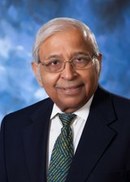Seminar: Invention and Innovation: Some Personal Reflections

Dr. Madan Bhasin
Mid-Atlantic Technology
Research & Innovation Center
(MATRIC)
Abstract:
The Webster’s dictionary defines “Invention” as “discovery, finding” meaning, “to produce (as something useful) for the first time through the use of imagination or of ingenious thinking and experiment.” This is distinctly different from the definition of “Innovation” as “the introduction of something new”. Others have also described innovation as, “the first commercial use of new technology/invention”. Hence, though the pursuit of new knowledge/science (and hence invention) is commendable and a necessary first step, yet the successful development/commercialization of new technology or the original invention (and hence innovation) is crucial to industry for value creation. Such innovation usually requires several additional inventions on the way to successful commercialization. Requirements and skill sets at the individual and the organizational levels are very different for the path to “Invention” and “Innovation”. Personal reflections of such requirements will be presented from author’s experiences over 40 years of conducting and leading industrial research and development projects. Enablers and barriers to “Invention” and “Innovation” will be highlighted. Three examples of such “Inventions” and “Innovation” in ethylene epoxidation catalysis will be covered that have provided several hundreds of million dollars worth of cumulative benefits over the past three decades and provided added capacity equivalent to a world scale unit. Two other examples of “Invention” will be presented that have the potential of becoming Innovations and create value in the future. These are in the areas of three-way automotive emissions control and in the production of ethylene from methane by selective oxidative coupling of methane.
Biography:
Madan Bhasin has over 45 years of experience in the chemical industry, primarily with Union Carbide and Dow Chemical. His primary area of expertise is heterogeneous catalysis, with a strong emphasis on surface science and the analytical techniques involved in catalyst characterization. He participated in the discovery, development, and commercialization of eleven generations of improved high efficiency ethylene epoxidation catalysts that have contributed to Union Carbide’s and Dow’s technology leadership position in this area.
Dr. Bhasin received his Ph.D. in Physical Chemistry from the University of Notre Dame in 1963. He received his B.S. from Delhi University. He is the inventor or co-inventor of more than 22 U.S. Patents. Dr. Bhasin was elected to the National Academy of Engineering in 2006 in recognition of his contributions to breakthroughs in the catalytic production of ethylene oxide.
He is currently Chief Scientific Advisor for MATRIC Corporation. Bhasin joined MATRIC in 2009 as Chief Scientific Advisor and is responsible for planning and guidance of research projects and international business development. He also serves as a resource and mentor for both senior and junior staff at MATRIC.
Please view the flyer for more information.
This seminar is sponsored by the Department of Chemical & Biomolecular Engineering at Notre Dame.